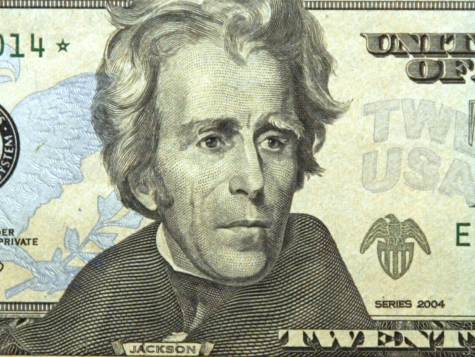A Slate writer named Jillian Keenan called for the removal of Andrew Jackson from the $20 bill because he was a genocidal exterminator of Native Americans. Keenan writes that she had an “amazing” high school history teacher who made sure his students knew about “the Indian Removal Act and the Trail of Tears, Andrew Jackson’s campaigns to force at least 46,000 Cherokees, Choctaws, Muscogee-Creeks, Chickasaws, and Seminoles off their ancestral lands.”
She continues:
It was unfathomable that thousands of Native American men, women, and children were forced to march West, sometimes freezing to death or starving because U.S. soldiers wouldn’t let them bring extra food or blankets. It was hard to hear that the Choctaw Nation lost up to a third of its population on the death march. It was disorienting to learn that what amounted to ethnic cleansing had come at the insistence of an American president … Andrew Jackson engineered a genocide. He shouldn’t be on our currency.
Keenan writes that Jackson was even more racist than was typical of his era, noting:
After the Indian Removal Act only narrowly passed Congress, an 1832 Supreme Court ruling declared it unconstitutional. (Jackson ignored that decision.) In 1838, Ralph Waldo Emerson wrote a passionate letter calling Jackson’s policies “… a crime that really deprives us as well as the Cherokees of a country, for how could we call the conspiracy that should crush these poor Indians our government, or the land that was cursed by their parting and dying imprecations our country any more?”
After segueing into a litany of problems the current native American population faces, including the Pima Indians in Arizona having the highest rate of diabetes in the world, the fact that a Native American woman has a 1-in 3 chance of being raped, an epidemic of suicide among Native American teenagers and youth, unusually high rates of unemployment in Native American communities, some of the highest rates of dropouts in the country among the native American population, a housing shortage on tribal lands, etc., she states, “Jackson’s visage on the $20 doesn’t compare.”
Of course, as a committed leftist, her essay wouldn’t be complete without an attack on Ronald Reagan, so she weaves this in:
This wouldn’t be the first campaign to change a face on our currency. In 2010, H.R. 4705 called for Ronald Reagan to replace Ulysses S. Grant on the $50 bill, and in 2003 the “Ronald Reagan Dime Act” tried to bump Franklin Delano Roosevelt off the dime. (Amazingly, those weren’t the only recent legislative attempts to put Reagan on money. There were at least two others.) If our government wants to spend time arguing about who should be represented on dollars and coins, it can start by booting off the man who championed a genocide.
Keenan has some suggestions as to who should replace Jackson, sneering, “No historical figure is perfect, but we don’t need perfection. In fact, it’s a low bar to clear: We just need someone better than Andrew Jackson.” She suggests Frederick Douglass, Osceola, Davy Crockett, Ralph Waldo Emerson, and lastly, Harriet Tubman.
She concludes, “Andrew Jackson’s legacy opened the door for Americans from all economic backgrounds to participate in politics. For that, he deserves our thanks. But let’s not whitewash Jacksonian democracy. Let’s elevate a more honorable American instead.”

COMMENTS
Please let us know if you're having issues with commenting.